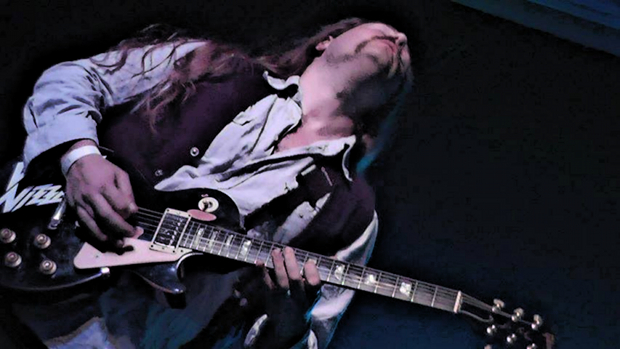Back to Basics with Pentatonics
A few very simple pentatonic-based ideas that are great for beginners, and a nice review for more advanced players.
All the latest guitar news, interviews, lessons, reviews, deals and more, direct to your inbox!
You are now subscribed
Your newsletter sign-up was successful

For many guitarists, the pentatonic scale is the first thing you will learn when developing your lead guitar playing.
It's incredibly simple and easy to remember. As musicians develop further, they try to move away from playing pentatonics when soloing by adding notes from outside of the scale to break out of the regular shapes or by playing different scales altogether.
I believe the rationale is that the pentatonic scale is perceived as being for beginners; therefore, to prove one's technical/theory prowess, you must use more complex scales when soloing. I did this when developing as a lead player. But as I've matured, I've found myself coming back to the pentatonic scale and realizing that it can be powerful in rock/metal if used correctly.
I want share a few very simple ideas based within the pentatonic scale that are great for beginners but also could be a nice review for advanced players. These ideas may seem simple, but if used correctly they'll add some dynamics within your solos, particularly if you are a "shredder."
I'm going to give you many ideas throughout the next couple of months, but this week I'm going to focus on a lick that's probably been used on every classic rock/metal album of the past 40 years. I like this lick because it's extremely versatile and can be used in a number of different ways.
In its most basic form, the lick is just three notes, which could be used by themselves to make a very simple blues phrase. The real value comes when you incorporate the basic three notes into more complex licks and phrases. Here are some of my ideas:

Here are the basic three notes played slow. You should barre the B and high E strings with your first finger in all of the licks. After playing the lick slow, I loop the three notes as a triplet to create a faster lick that could be used in more of a rock/metal setting.
All the latest guitar news, interviews, lessons, reviews, deals and more, direct to your inbox!

For this idea, I add a pull-off onto the end of the last lick to create a longer phrase. I then loop this lick again to create a fast-rolling sextuplet lick. I've heard many players use these repetitive-style licks, including Randy Rhoad,s who used similar ideas in his solos from "Mr Crowley" and his live solo for "Paranoid."

This final lick uses the phrase to start a descending pentatonic pattern. The phrase is a natural-sounding way to get into any descending pentatonic idea. Try using it with your own descending patterns.
It's important for you get to be able comfortably play this phrase in any given circumstance. It should feel natural to use the lick while improvising a solo in any given situation. I hope you find value in this lesson and will give you some simple pentatonic ideas over the next couple of months, cheers.
Will Wallner is a guitarist from England who now lives in Los Angeles. He recently signed a solo deal with Polish record label Metal Mind Productions for the release of his debut album, which features influential musicians from hard rock and heavy metal. He also is the lead guitarist for White Wizzard (Earache Records) and toured Japan, the US and Canada in 2012. Follow Will on Facebook and Twitter.
